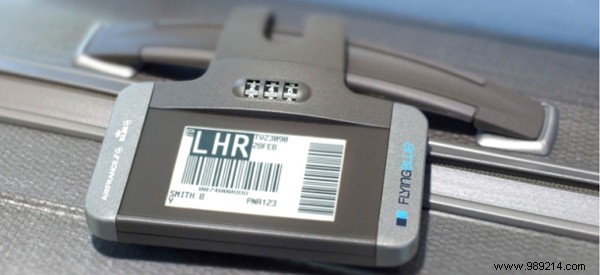Although many airports and airlines have joined forces in an effort to minimize the incidence of lost baggage, the phenomenon still occurs frequently enough to become something of an initiation ceremony for every frequent traveler.
The thought of losing luggage affects the way some people plan their trips and in some cases even makes them less likely to travel by plane when cheaper alternatives are available. It's shocking how we've been able to master countless technological achievements, but we haven't figured out how not to send a suitcase to Tokyo before your flight lands in Paris. But there is a way to use what the 21st century has brought to our advantage and minimize (and in some cases eliminate) baggage loss in flights.

For more than two decades, we have used technology developed in the 1960s to make sorting our luggage easier. That's not necessarily a bad thing, but when something better (and cheaper) comes along, it's probably time to start considering our options. Barcode readers must "see" the bag tag to read it, making it vulnerable to anything that gets in the way. This means that baggage without a visible tag will not go on their flight. But what if you don't need to see the tag to scan it?
In late April 2016, Delta Airlines announced that it would be working with airports across the United States to implement Radio Frequency Identification (RFID) tag systems that allow scanners to simply "ping » bags for sorting, greatly increasing the airline's ability to avoid losses.
RFID tagging is not only more reliable, but also costs less than matrix barcode scanning, which requires a multitude of devices placed at every corner around conveyors. Perhaps the most hilarious thing about this is that we could have been using RFID technology since it first appeared in 1973. That's over four decades ago!
Is RFID tagging reliable enough to be used in this context? Tell us what you think in the comments!